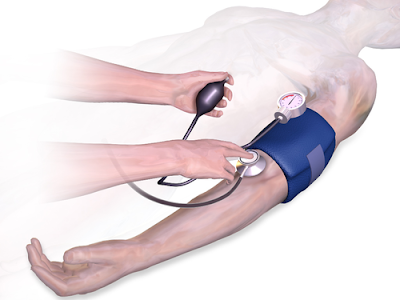The mechanisms that produce tinnitus are not completely understood. An estimated 80% of people with tinnitus is able to successfully disregard it and report only that they have it, but simply ignore it. Symptoms of tinnitus The main symptoms of
Tinnitus: Possible Cause
Tinnitus from the Latin word tinnitus meaning "ringing" is the perception of sound within the human ear in the absence of corresponding external sound. Tinnitus is not a disease; but a symptom resulting from a range of underlying causes that can include: ear infections, foreign objects or wax in the ear, nose allergies that prevent (or induce) fluid drain and cause wax build-up. Tinnitus can also be caused by natural hearing impairment (as in aging), as a side-effect of some medications, and as a side-effect of genetic (congenital) hearing loss. Tinnitus may as well have a connection to memory problems, anxiety, fatigue or a general state of poor health. Tinnitus and hearing loss can be permanent conditions, and therefore, precautionary measures are advisable.
Tinnitus can be perceived in one or both ears or in the head. Tinnitus is usually not a sign of a serious, ongoing medical condition. Tinnitus does tend to but many persons with severe tinnitus still experience distress 5 years later. Tinnitus Retraining Therapy (TRT) is a method of habituation of tinnitus is helpful for some (Wang et al, 2003). Tinnitus masking has been central to tinnitus therapy for over 50 years. Tinnitus maskers create and deliver constant low-level white noise to the ear(s) of the patient.
Tinnitus: What About Hearing
Hearing loss is a complex process and due to the personal and unique nature of each tinnitus condition, proper evaluation and specialized treatment is necessary. Just imagine hearing a ringing in the ear's noise in your ear and no matter what you does it will not go away. Heller and Bergman (1953) conducted a study of 100 tinnitus-free university students placed in an anechoic chamber and found that 93% reported hearing a buzzing, pulsing or whistling sound. Experts are predicting that devices such as the Apple iPod and other MP3 players are going to leave users a legacy of hearing loss, deafness and tinnitus. Hearing instruments also can affect tinnitus positively in many ways. Hearing routine sounds becomes a problem and, frankly, the problem can drive sufferers to extremes.
Hearing aids for the treatment of tinnitus. Hearing aids cost anywhere from several hundred dollars to several thousand dollars. Hearing aids are good for patients who have tinnitus in the 4 kHz and lower range. Conversely, if the same test subject is told to focus only on the tinnitus, he will report hearing the sound even when a test noises to exceed 70 decibels, making the tinnitus louder than a ringing phone. Some audiologists run specialist tinnitus clinics to help you manage your tinnitus, and they fit hearing aids and/or therapeutic noise generators if needed.
Some Kind of Therapy
Top Tinnitus Retraining Therapy (TRT)Aims to reduce and ultimately eliminate a tinnitus perception. "Treatment of tinnitus in the elderly: a controlled trial of cognitive behavior therapy". One of the most effective forms of therapy for tinnitus patients is what's called sound therapy. "Auditive stimulation therapy as an intervention in subacute and chronic tinnitus: a prospective observational study". Relaxation therapy can help greatly if learnt and practiced daily. Top Cognitive Behaviour Therapy (CBT)Effective in alleviating distress and producing adaptation to tinnitus.
Relaxation training therapy teaches the person to learn to relax while experiencing tinnitus symptoms, thereby reducing the effect of that stress. In cases where self-help techniques are not sufficient, other management options include:
Stress reduction Relaxation techniques including massage and acupuncture Treatment for depression and anxiety Sleeping aid Hearing aids to improve underlying hearing loss Family support Professional support groups such as the American Tinnitus Association Tinnitus Retraining Therapy Gingko biloba.
The electronic ear used in the recording of Sound Therapy challenges the ear with constantly alternating sounds of high and low tone. Note: not exactly unbiased indicate that 96% of tinnitus sufferers who persevered with the listening felt they benefited from the therapy.
Unfortunately, attempts to identify and treat the underlying disorder causing tinnitus are often unsuccessful. Although there is no cure, some causes of tinnitus are treatable. Worldwide research continues but the actual mechanisms, or processes of tinnitus are not yet fully understood. Around 20% of people with tinnitus are less able to successfully ignore it and require special help to break the vicious cycle of attending to it, being bothered by it, spending more time attending to it, becoming more irritated by it, etc. However, most people who report having tinnitus are not suffering from it, meaning that their tinnitus does not affect their day-to-day living.
Patients with severe untreatable psychiatric disorders, those who do not share a common language and those involved in litigation over their tinnitus are the only exceptions in our practice. However, the people who are debilitated by their tinnitus are often found to be suffering from a major depressive disorder. Doctors estimate that up to 31% percent of the patients they see that are suffering from severe tinnitus are zinc-deficient. Experiences of tinnitus are very common in all age groups, especially following exposure to loud noise. However, it is unusual for it to be a major problem.
Click here [http://freebookreviewsbygaetan.com] for instant access to free tips, trick and reviews on Tinnitus where the ringing never stop in yours ears.
Article Source: http://EzineArticles.com/?expert=Gaetan_Fortier


Comments